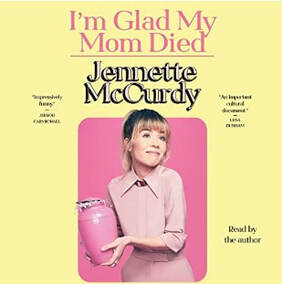 by Courtney R. Hall Celebrity memoirs and autobiographies are nothing new. They act as a fruitful branch of a celebrity’s branding arsenal and are a cash cow for publishers. Spanning decades, it’s been a commonly held belief that many, if not all, of these memoirs were written by an unnamed third party, a ghostwriter. These publications would be seen as a piece of PR material created for super fans, full of fluff like a celebrity's go-to salad that they would consume daily on the set of the television program that made them famous. However, there is a shift occurring in the world of celebrity memoirs and those with fame taking control of their own narrative. Some celebrities have raised the bar for what constitutes a great celebrity memoir in an era where social media blurs the distinction between privacy and publicity and shortens the gap between stardom and the unfamous. In a post #FreeBritney culture, the public is aware of how destructive and misleading both the paparazzi and media are towards celebrities, especially those that are women. Fans are tired of being spoon fed fluff. What they now crave is authenticity.
0 Comments
by Lesley George  Photo by Shelby Miller on Unsplash Photo by Shelby Miller on Unsplash I’ll admit—I have spent hours skimming through fanfiction, picking the perfect tag to fit into the hyper-specific story I wanted to read: friends to lovers, fluff, slice of life, alternate universe (AU). There is something euphoric about being able to find a story so acutely tailored to my tastes; the only thing that could ruin the experience for me would be a misuse of a story tag [“Please use story tags correctly!” I cried]. Tropes and tags are a staple within the fandom realm and exist to satisfy the fans desire for curated content, made by other fans, involving their favorite characters. But can these markers exist outside fandom culture? by Skyla Everwine  Photo by Jo Szczepanska on Unsplash Photo by Jo Szczepanska on Unsplash The most punk-rock thing I did this semester was stand in line at a UPS and try not to cry. It wasn’t the basement shows or broken guitar strings, but being at UPS at 4 p.m. on a Tuesday. I had but one task: to print nine pages, double-sided and in color. And then do that until 50 more times. It was the fourth or fifth printer I had gone to in order to print the zine I was making. I had learned that commercial printers were hellish portals to untamable frustrations, and that making the project for my Self-Publishing course with Dr. Jason Luther was far more difficult than it needed to be. I had turned what could have been a single page mini-zine into 36 pages of digital and hand-collaged interviews.  Photo by Emmanuel Ikwuegbu on Unsplash Photo by Emmanuel Ikwuegbu on Unsplash by S. E. Roberts Writing is not a career that has ever paid enough money. Now, I’m not talking about bloggers or journalists, who could certainly stand to make more but don’t necessarily have to. I’m talking about novelists, poets, and short story writers, those artists who are self-advertising on social media, submitting to literary magazines, and publishing books of their work, all in the hope of being recognized and well-compensated for their work.  by Amanda Smera Few things make me angrier than when people read something I’ve written and point out my talent. The intentions, of course, always come from a good place and they mean no harm. And yet the bitter taste in my mouth never fails to feel discrediting. I want to scream from the top of my lungs: “I’VE BEEN WORKING ON THIS FOR A MONTH STRAIGHT, FOR YOU TO DARE AND ASSUME IT WAS JUST ‘MY TALENT’?!” It feels like an outdated myth that talent is a bigger force, that either you’ve got it, or you don’t. I have hundreds of thousands of school essays, Harry Potter fan fictions, and journal entries that prove that I was no Jane Austen at the age of five or fifteen. |
Archives
July 2024
Categories
All
|
|
Glassworks is a publication of Rowan University's Master of Arts in Writing 260 Victoria Street • Glassboro, New Jersey 08028 [email protected] |
All Content on this Site (c) 2024 Glassworks
|

 RSS Feed
RSS Feed
